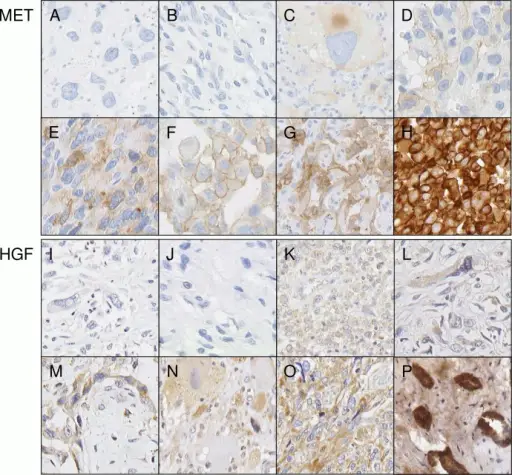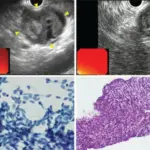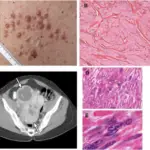Undifferentiated pleomorphic sarcoma is a rare type of cancer that begins mostly in the soft tissues of the body.
What is the Pathology of Undifferentiated Pleomorphic Sarcoma?
The pathology of Undifferentiated pleomorphic sarcoma is:
-Etiology: The etiology of undifferentiated pleomorphic sarcoma is not clear.
-Genes involved: TP53, RB1, CDKN2A, ATRX, and CDKN2B.
-Pathogenesis: The sequence of events that lead to undifferentiated pleomorphic sarcoma is the tumorigenesis of undifferentiated pleomorphic sarcoma initiated by a subpopulation of cells called side population cells, which the Hoechst dye efflux assay can identify.
-Histology: The histology associated with undifferentiated pleomorphic sarcoma shows spindle, round/epithelioid, or pleomorphic, demonstrating marked cytologic atypia.
How does Undifferentiated Pleomorphic Sarcoma Present?
Patients with undifferentiated pleomorphic sarcoma typically affect young adults’ males more than females present at the age range of 25 and above. The symptoms, features, and clinical findings associated with undifferentiated pleomorphic sarcoma include swelling, pain, tingling, and numbness.
How is Undifferentiated Pleomorphic Sarcoma Diagnosed?
Undifferentiated pleomorphic sarcoma is diagnosed through MRI and biopsy.
How is Undifferentiated Pleomorphic Sarcoma Treated?
Undifferentiated pleomorphic sarcoma is treated by surgical resection with a negative margin.
What is the Prognosis of Undifferentiated Pleomorphic Sarcoma?
The prognosis of undifferentiated pleomorphic sarcoma is fair.



